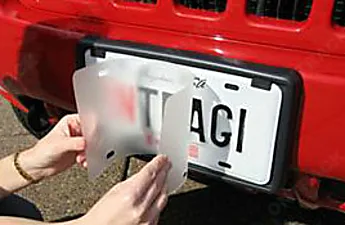
WASHINGTON -
While working as an electrician Lee Carter received a literal shock, through one hand and across the chest, that jolted him into politics and turned him on to what was a dirty word in America for nearly a century: socialism.
His struggle to obtain compensation for the workplace injury inspired him to run for office, and this week Carter ousted a top Republican incumbent to nab a spot in Virginia's House of Delegates, becoming one of over a dozen unabashed socialists newly elected to US state and municipal seats one year after Donald Trump took the White House.
The 31-year-old former Marine is part of a growing cadre of Americans, particularly millennials, pledging their allegiance to the Democratic Socialists of America, the nation's fastest growing leftist group that was originally founded in 1982 as a foothold for Marxists.
Riding the wave of democratic socialist Bernie Sanders's spirited White House bid against primary rival Hillary Clinton, the organization is helping propel socialism out of the shadows.
In the years prior to the Sanders campaign, the DSA's number of card-carrying members hovered around 6,500 -- and has nearly quintupled since 2016's presidential race to more than 30,000.
Its median age has dropped from about 60 to 35, according to organizers, some of whom have playfully referred to the surge among youth as a "socialist baby boom."
Dismayed by Trump's rise to power Jacquelyn Smith in January joined the DSA, which has chapters in nearly every US state. And at just 22 years old, she managed Carter's victorious campaign.
Organizing as a DSA member means "I am challenging the root of the problem and not the symptoms," she told us at France24, speaking at a recent convention of the organization's local Washington branch.
"I focus a lot less on challenging Trump and a lot more on challenging why he got there in the first place," she said, citing forces including economic inequality and white supremacist movements.
Today Smith said millennials -- a generation that grew up during the 2008 financial crisis -- are eager for socialism, to "embrace the ideology and really fight with it publicly."
Under her management DSA members spent months canvassing for Carter in Virginia's 50th district, about an hour's drive west of the nation's capital, knocking on more than 9,000 doors in the final four days.
Those grassroots efforts helped propel Carter, who ran as a socialist on the Democratic party ticket, to an upset nine-point victory against one of Virginia's most powerful state Republicans.
- 'Alarming reputation' fading -
Despite their current momentum far-left groups like the DSA remain on the fringes of American politics, working within a two-party system that leaves little space for outsiders.
The political group is not a party, and has nowhere near the clout of sister movements elsewhere such as Jeremy Corbyn's Labour Party in Britain, or Syriza in Greece and Podemos in Spain.
But socialism has not had a voice this loud in American politics for decades.
Though she would not yet classify the wave of leftist activism as a mass movement, politics professor Cathy Schneider of American University said the DSA's growth is significant in that it indicates voters shocked by Trumpism are also increasingly disillusioned with the Democratic Party.
"There is a sector of American society who feel that the political parties do not address their concerns," she said. "The Democratic Socialists have said we have an answer for that."
Their current strategy does not necessarily include third-party politics; instead the DSA is fielding socialist candidates for elected office using whichever ballot line makes winning likely, generally that of the Democrats.
And though many members got involved in the aftermath of the Sanders campaign, organizers now say their goal is to build a movement not connected to any single politician but instead based on core issues like universal health care, public investment in education and housing and bolstering labor protections.
Schneider also noted that socialism's "alarming reputation" appears to be fading, no small development in a country that lived through the Red Scare era of anti-communist propaganda.
"People no longer associate socialism with dictatorships in the USSR and China," she said.
That didn't stop Carter's opponent from red-baiting: in the final days of the race the Republican sent a mailer to 11,000 homes that juxtaposed the democratic socialist's face with portraits of famous communists including Karl Marx and Mao Zedong.
But even Republican voters told canvassers they found the attempt to sully the leftist's image "gross," Carter said.
"The scare-mongering around what's essentially a disagreement on economic philosophy doesn't work any more."





No comments:
Post a Comment